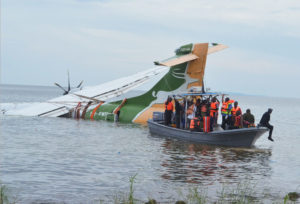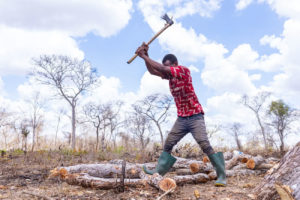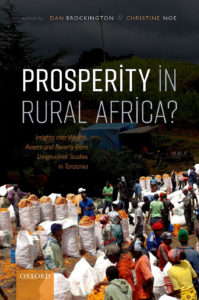by Ben Taylor
Universal Health Insurance bill delayed
In November, Parliament postponed the tabling of the Universal Health Coverage Bill for and moved it the Standing Committee for Social Services and Community Development for further consultations. This followed concerns raised by members of parliament and stakeholders that the bill had several significant shortcomings.
The government initially brought the bill before the house in September. At this point, a spokesperson for the Ministry of Health stated that the bill will “answer the call to provide equitable and decent healthcare for all.” She added that “the process started in 2016, we’ve not only learned from challenges by the National health Insurance Fund (NHIF), but also from other countries that have established sustainable universal health insurance.”
Health minister Ummy Mwalimu said the government aimed, through the bill, to make health insurance both compulsory and affordable to all. To make it affordable, she explained that contributions to insurance schemes would be made four times a year rather than in one annual lump sum, that the elderly and most vulnerable would be identified using existing methods and would be enrolled in health insurance at no cost, and that the government would set a standard benefit package and reasonable contribution rates so that nobody would be excluded. “We will come up with standard benefit packages,” said the minister. The contribution to be unveiled later on, will be reasonable. The government’s goal is to cut the burden on citizens,” she insisted.
Ms Mwalimu also allayed fears over rumours that force would be applied to make Tanzanians comply with the UHI. “No one will be fined or jailed for not having health insurance,” she said.
Instead, according to the bill, it will be compulsory for citizens to have health insurance whenever other public services. This includes seeking a driving licence, motor vehicle insurance, admitting children for advanced secondary education or colleges, provision of a passport, Taxpayers Identification Number (TIN), business licence, visa, sim card registration and provision of a national identification card. “The lesson that we have drawn from Ghana, Rwanda and Ethiopia is that for citizens to join the Universal Health Insurance, we must attach it to social services,” explained the minister.
The minister said it would not be compulsory for Tanzanians to register with the National Health Insurance Fund (NHIF), but could decide to join private insurance companies if they preferred. Employees in the public and private sector will be enrolled in health insurance by their employers no more than 30 days after commencing their employment contract. For the basic benefits bundle, employers will be required to remit six percent of each employees’ salary, of which employers will contribute half or more with the remaining amount to be continued by the employee.
Those who are self-employed or work in the informal sector, including small-scale agriculture, will be required to register themselves for health insurance, either under the state-owned National Health Insurance Fund (NHIF) or a private provider.
The bill also affirms the Tanzania Insurance Regulatory Authority (TIRA) as the sole regulatory body mandated to regulate insurance activities in the country. According to the bill, “the authority will have three obligations: registration of health insurance schemes, monitoring the quality of services provided by contracted services providers and ensuring health insurances provide basic benefits bundles as provided by the act.”
The bill drew both praise and criticism from stakeholders. Executive Director of the Legal and Human Rights Centre (LHRC), Anna Henga, said they “commend the government for coming up with the bill which aims at ensuring that all citizens have access to health services, thus reducing the burden and costs of treatment incurred by people who have no health insurance.” However, she also pointed out that “there are sections of the bill which deny some people their rights.” She said the law targets poor people but it has not specified the criteria for a poor person, and noted that in denying people access to other services if they have not joined the health insurance, the law would deprive them of their rights.
At present, according to official data, around 15% of Tanzanian citizens are members of a health insurance scheme, dominated by the government-run NHIF and supplemented by a handful of private providers who largely serve those in formal employment. This leaves the vast majority of citizens lacking health insurance and vulnerable to serious financial shocks in case of illness or injury.
Earlier in 2022, a study by the National Institute for Medical Research (NIMR) found that 73% of Tanzanians expressed their willingness to pay for health insurance. “They say each Tanzanian is capable of contributing TSh 65,000 per year for the purpose and in return, they will access health services at all health facilities in the country including the Muhimbili National Hospital and Bugando Zonal Referral Hospital among others,” said the minister at the report’s launch in May.
Later, in August, alarms were raised that the NHIF was vulnerable to collapse, particularly in view of the ongoing increase in non-communicable disease in Tanzania. “Our health insurance [NHIF] could soon collapse as it is overwhelmed by a rise in claims which are related to non-communicable disease (NCD),” warned the minister.
Insurance and social security experts told The Citizen newspaper that as a short-term measure, the government should bailout the fund. They also said that its benefits and price level should also be restructured while health insurance must be made compulsory for all Tanzanians.
In explaining the delay to the bill, the Minister said the bill would return with some major changes, including removal of conditions that were made mandatory for someone to have health insurance in order to access services such as travel documents, Taxpayer Identification Number (TIN), sim card registration and national ID.
The changes will include introduction of two levels of insurance coverage: one that will enable beneficiaries to receive treatment at public and private hospitals all over the country, and a second that will comprise a low cost basic bundle that will enable beneficiaries to be treated at dispensaries, health centres and district hospitals, with contributions expected to be in the range of TSh 50,000-60,000.
The Minister added that a further change would be to allow more family members to be included on one family member’s insurance.
Tanzania praised for work combatting HIV/AIDS, re-doubles efforts
In launching a new report in Dar es Salaam in November, the Executive Director of the United Nations Programme on HIV/AIDS (UNAIDS), Winnie Byanyima, commended Tanzania for its achievement in reducing HIV infections. Between 2010 and 2021, she noted, the number of new HIV infections and AIDS-related deaths in Tanzania had fallen by 50%.
“The country’s new generation has no idea what AIDS looks like because Tanzania has managed to get 80% of HIV patients on treatment,” she said.
Tanzania’s Health Deputy Minister Godwin Mollel said, “Tanzania is estimated to have 1.7 million people living with HIV, 1.5 million have been reached [with anti-retroviral therapy]. By 2026, the ministry aims to have attained the “three 95s,” meaning “identifying 95% of people living with HIV, dispensing medicines to 95% of them, and curbing infections by 95%.”
President Samia Suluhu Hassan was similarly ambitious. In launching Tanzania’s fifth multisectoral strategic framework for HIV and AIDS in December, she announced that Tanzania seeks to achieve “three zeros”: zero new HIV infections, zero discrimination, and zero AIDS-Related deaths, by 2026. The global target is to achieve the three zeros by 2030.
She added that studies have shown that despite overall progress, new infections among those aged 15-24 years are on the rise. She emphasised that more effort should be made to reduce this, otherwise it would be virtually impossible to end HIV/AIDS. “If these young people are affected now, they will be provided with all the medical attention they need, which includes prescribing them with antiretrovirals, but our quest to end HIV/AIDS will be tougher.”
“We need to put in more effort by creating awareness. Let’s campaign by providing them with skills to reduce new infections. Let’s work together as we have been doing and make some notable achievements,” the President said.
Ms Byanyima pointed out another weak spot, noting that girls and women are three times more likely to be infected with HIV than boys and men of the same age. “In fact, out of four people who are infected, three are girls or women,” she said. “In Tanzania, we estimated that 54,000 were infected last year. Those aged 14-24 made up about 30%, with 74% of those being girls or young women. We have a problem there, but we know the solution – education, which is a powerful equalizer.”




